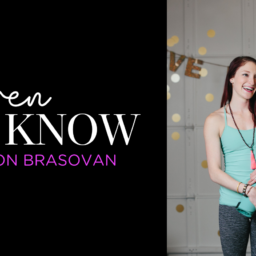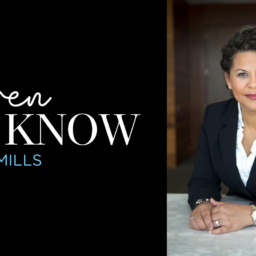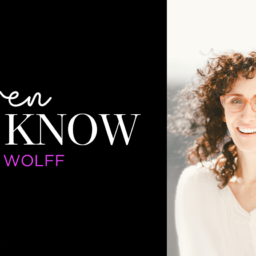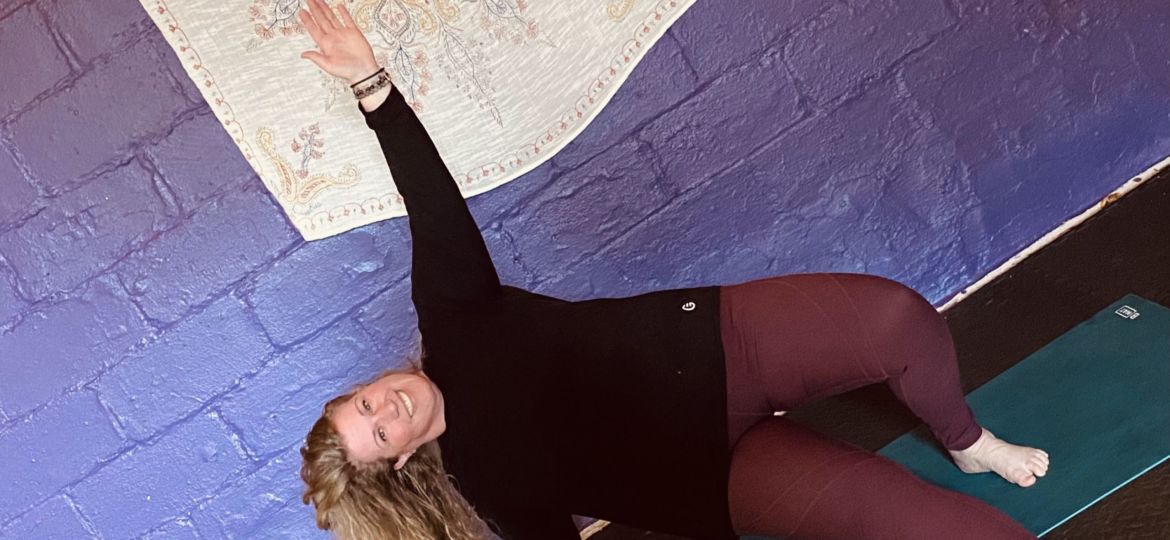
5 Questions with Stephanie Groves is an ongoing series featuring local women doing interesting things that we’d like to know more about. Want to be featured? Email us at editorial@indymaven.com.

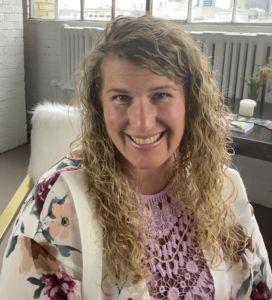
Page Park helps people reconnect with themselves through yoga, movement, breathwork, and meditation. At Tulsi Rose Yoga in Beech Grove, she creates a space where clients can get in touch with their inner voices and listen to their bodies to tune in to their personal needs and desires.
After spending 24 years as a classroom teacher, Page found yoga to be a powerful way to teach people and saw the impact her thoughtful sessions and classes had on those who participated. Page is an “RYT 500” registered teacher, and she has furthered her training in yoga through certificates in Children’s Yoga (her “RCYT” is coming), and in yin yoga.
AS the owner of Tulsi Rose Yoga one of your specialties is “grief yoga.” Can you explain more about what grief yoga is and its possible benefits?
Grief yoga is the use of yoga asana (poses), breathwork, meditation, and philosophy to process and express the emotions related to grief and work through our internal processes. All people are welcome, all kinds of grief, and every emotion.
As a society, we tend to not fully feel our emotions; we stuff, ignore, or bypass them when in reality, the feeling of these is very beneficial. With grief in particular, people are expected to “move on” or “heal” at a rate they might not be ready for yet.
Everyone processes grief differently. I’ve learned in my own grief journey that it’s not something you just heal from or get over; it’s something you learn to live with for the rest of your life. I liken it to a dance. Grief comes to visit often at first, then sporadically throughout life. We learn the steps and how to dance with it when it visits.
When you lose someone you love, you’re changed forever. I hope to help people use this change for the betterment of their life.
Your website mentions that you also teach yoga to children with Autism Spectrum Disorder (ASD). Are there other classes that you can tailor to specific participants, and how would those differ from a traditional yoga session?
In addition to classes, I also teach private sessions or even semi-private family sessions. These sessions are for those who might struggle in a traditional class, want individual attention, or have a specific need they might want to work on with individual attention. These sessions are highly individualized and tailored to the individual’s specific needs.
What was your professional background before becoming a yoga teacher, and what drew you to yoga?
My background is in special education for mild disabilities. I’ve been a classroom teacher for 24 years.
I’ve been drawn to yoga for years. The dance with yoga started in college when I took a yoga class for PE credit. Yoga made its way in and out of my life for years, coming in to stay about five years ago. It was during this time I fully leaned into the power of yoga, especially breathwork, and decided to complete a 200-hour yoga teacher training. I originally wanted to write meditation and mindfulness curriculum for high school students struggling with mental health issues.
If someone does not have the time or means for a yoga session with you, do you have any exercises or tips that they can practice at home to help with grief?
I would begin by focusing on breath. Overwhelming grief can put our nervous systems in dysregulation and focusing on our breath can help bring that back to regulation and into the present moment.
Other movements I would encourage would be to start with forward folds: seated, standing, legs wide, legs narrow. I would also remind anyone experiencing grief that there is no right or wrong way to grieve; whatever emotions you’re experiencing, feel the emotion and move the body in whatever way feels right or breathe to allow that emotion to move through and not get stuck.
One final thought: There is no timeline for grief. It’s something we learn to live with and it comes to visit when we least expect it, so be gentle with yourself as you learn what life is like now.
Do you have any events lined up in the future that we can look out for?
I do! I’m excited for an upcoming Movement and Writing Retreat in May. It’s going to take place at this amazing farmhouse that was a part of the underground railroad. We’ll be offering workshops on the connection between the body and creativity, specifically writing. You’ll be fed delicious, locally sourced meals and snacks. Karen Burr of Materia Medica Spa Herbal Blending Bar (who is also a Maven), will be offering a plant walk. There will be a sound bath in the evening, and so much more!
Follow me on social media or keep checking in with the website for future events. I don’t have anything planned at the moment, but I am working on some workshops for the summer and fall.
Stephanie Groves is the Executive Editor of Indy Maven.
All of our content—including this article—is completely free. However, we’d love it if you would please consider supporting our journalism with an Indy Maven membership.










